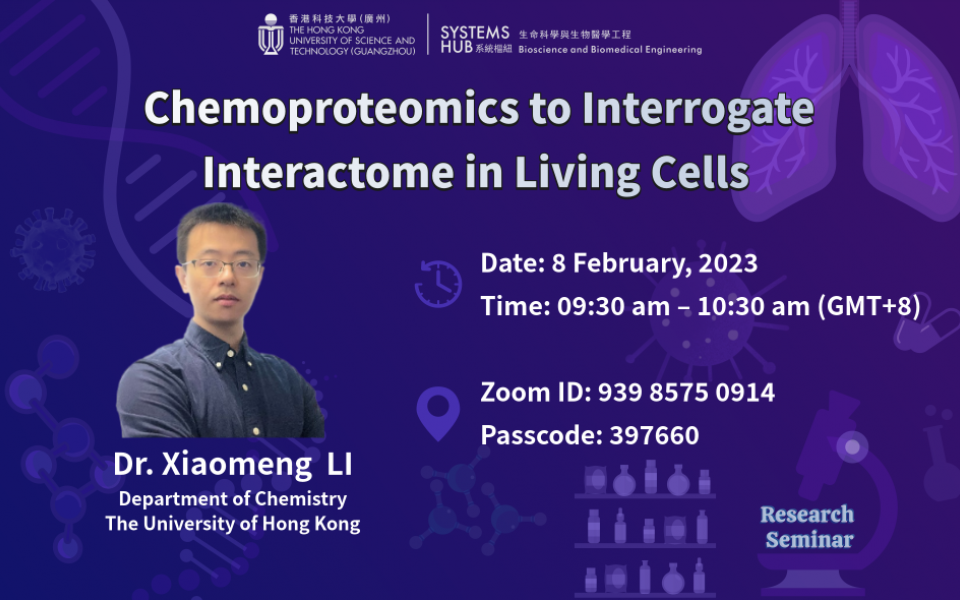Chemoproteomics to Interrogate Interactome in Living Cells
Supporting the below United Nations Sustainable Development Goals:支持以下聯合國可持續發展目標:支持以下联合国可持续发展目标:
ABSTRACT
As the leading players inside cells, proteins function associatively with each other as multi-component complexes. The precise and dynamic regulation of protein-protein interactions (PPIs) organize and control essentially every cellular process in multicellular organisms. Consequently, the aberrant PPIs are implicated in numerous disorders such as cancer and neurodegeneration. On the other level, the PPIs between human and microbiome substantially impact on human health and underlie the mechanisms of various infectious diseases. Therefore, deciphering diverse and global PPIs (interactome) under physiological and pathological conditions has been a long-standing interest, as a comprehensive understanding of biomolecular interactomes is crucial for the development of novel therapeutic strategies for human diseases.
However, it’s challenging to systematically profile the cellular interactomes. For example, the conventional affinity-based purification approach is less efficient in capturing the transient and weak interactions, which dominate the whole interaction network and mediate crucial cellular events. Moreover, the exogenous bait proteins and ex-situ purification may destruct the cellular organization, resulting in a high rate of false-positive identifications and loss of context-dependent interactions such as those involved in pathogen infections with host.
In this talk, I will introduce how we developed the integrative chemoproteomic approach combining bioorthogonal chemistry, photo-crosslinking, metabolic labeling, and quantitative proteomics to tackle the abovementioned challenges, and thereby to robustly identify dynamic, transient, and weak interactions in living cells.
BIOGRAPHY
Dr. Xiaomeng Li obtained his B.S. from Zhejiang University and Ph.D. in Chemical Biology from The University of Hong Kong, during which he developed approach to identify histone modification-involved interactions under physiological conditions and investigated the functions of histone crotonylation. Since 2018, he works as postdoctoral fellow in Prof. Xiang David Li’s lab at Department of Chemistry, The University of Hong Kong, where he designed and established novel chemical proteomic approach to study the bacteria-host interactions during infection. His research interests focus on the development and application of chemical biology approaches to solve various biological problems involving epigenetics and protein-protein interactions.
